When I planned my trip, this was a must go destination. The border town of Moreh in Manipur, This was not for traditional "sight seeing", for this is a charmless, dusty town. But for a strange reason and therein lies an interesting story.
In pre World War days Tamils from the south Indian state of Tamil Nadu (I am a Tamil) were being recruited by the British to serve as labour in many parts of the British Empire
. The story goes that ships would anchor off Madras or Nagapattinam and the call would go out to the villages for able bodied men. They went and boarded the ship and it was the luck of the draw whether they went to the Caribbean, Fiji or South Africa ! In most cases, never to return.
Two of the most popular destinations were Singapore and Rangoon. Both these places were more advanced than India in those days and the jobs were good. So they went and there was a significant Tamil population in both Burma and Singapore.
Then came World War II and the Japanese occupation of both the countries. Many Tamils fled back to Tamil Nadu to take refuge until the World War ended. Those in Burma faced a massive problem. The sea route was cut off by the Japanese and those that missed the last steamer faced a gut wrenching choice. Stay and suffer or begin the long walk back to India. Most walked. Yes WALKED. From Rangoon to Manipur and then through Assam, modern Bangladesh, Bengal, Orissa, Andhra and then Tamil Nadu
. Almost the route I took to come . Imagine walking 4000 kms. Many died on the way and the others carried on. Some reached Madras.
When the war was over, most who had come, decided to go back to Burma, because it was more prosperous than India then. They began the long walk back in the reverse direction. And they reached the border town of Moreh, only to find that the border had closed. They then had no choice but to simply settle down in Moreh. Burma began the long march to decline. As conditions deteriorated more Tamils crossed the border from Burma and settled in Moreh waiting for conditions to improve. Moreh became a Tamilian town with Tamils in the majority and native Manipuris reduced to a minority.
At its peak, some 20-25 years ago, there were 4000 Tamils in Moreh. Then started the insurgency and a significant conflict with "forest tribes" (kattu makkal, they told me). Some Tamils were killed. Consequently many Tamils left the place and today there are only some 100 families left
.
I went in search of the Tamil section of the town. There is a traditional south Indian temple and there is one South Indian eating joint. Its run by a Lakshmi mami, who's lived here for 50 years. I simply had to have a masala dosa ( a pancake filled with a potato preparation which is a delicacy in the South Indian cuisine) there.
I sat down and chatted with some of the Tamils who live here. Apparently they now live in harmony with the other communities, but still preserve the Tamil culture. Their Tamil is quaint, as they have been cut off from mainstream Tamil Nadu. Perfectly understandable to me , of course, but somewhat old fashioned ! It was a delightful experience. I've tried to capture some of the atmosphere in the pictures.
The road to Moreh is in perfect condition and its only 100 kms from Imphal. But it is heavily patrolled by the army and with multiple checkpoints. It takes a while to clear these very thorough checks. They checked everything in my car, even opened the fuse box in the bonnet ! So it takes some 3 hours plus to reach Moreh. The armymen are very polite and at every checkpoint they chatted with me as to how I dared to come from Bangalore alone !
There are amazing stories at every corner, if we only go and seek them, Ahhh the joys of travel :)
Masala Dosa at Moreh
Tuesday, March 03, 2015
 Moreh, Manipur, India
Moreh, Manipur, India
Other Entries
-
9Kamakhya Temple
Feb 1021 days prior Guwahati, Indiaphoto_camera9videocam 0comment 18
Guwahati, Indiaphoto_camera9videocam 0comment 18 -
10Elephant in front and back; where do you run ?
Feb 1219 days prior Kaziranga, Indiaphoto_camera25videocam 0comment 29
Kaziranga, Indiaphoto_camera25videocam 0comment 29 -
11Hello Arunachal Pradesh
Feb 1318 days prior Itanagar, Indiaphoto_camera10videocam 0comment 21
Itanagar, Indiaphoto_camera10videocam 0comment 21 -
12Freezing at Ziro
Feb 1516 days prior Ziro, Indiaphoto_camera15videocam 0comment 10
Ziro, Indiaphoto_camera15videocam 0comment 10 -
13The Apatanis
Feb 1615 days prior Ziro, Indiaphoto_camera19videocam 0comment 12
Ziro, Indiaphoto_camera19videocam 0comment 12 -
14The Tagin
Feb 1813 days prior Daporijo, Indiaphoto_camera9videocam 0comment 9
Daporijo, Indiaphoto_camera9videocam 0comment 9 -
15Gateway to the Siang
Feb 1912 days prior Along, Indiaphoto_camera2videocam 0comment 14
Along, Indiaphoto_camera2videocam 0comment 14 -
16Ni Hao China
Feb 2011 days prior Mechuka, Indiaphoto_camera34videocam 0comment 22
Mechuka, Indiaphoto_camera34videocam 0comment 22 -
17Nana and Gebu Sona
Feb 229 days prior Mechuka, Indiaphoto_camera16videocam 0comment 17
Mechuka, Indiaphoto_camera16videocam 0comment 17 -
18Crossing the Brahmaputra again
Feb 238 days prior Tinsukia, Indiaphoto_camera16videocam 0comment 29
Tinsukia, Indiaphoto_camera16videocam 0comment 29 -
19Lunch at Margherita
Feb 247 days prior Lekhapani, Indiaphoto_camera22videocam 0comment 41
Lekhapani, Indiaphoto_camera22videocam 0comment 41 -
20The land of the Ahoms
Feb 256 days prior Sibsagar, Indiaphoto_camera11videocam 0comment 14
Sibsagar, Indiaphoto_camera11videocam 0comment 14 -
21Welcome to Nagaland
Feb 265 days prior Mokokchung, Indiaphoto_camera11videocam 0comment 16
Mokokchung, Indiaphoto_camera11videocam 0comment 16 -
22The Ao Nagas
Feb 274 days prior Mokokchung, Indiaphoto_camera25videocam 0comment 24
Mokokchung, Indiaphoto_camera25videocam 0comment 24 -
23The Battle of Kohima
Feb 283 days prior Kohima, Indiaphoto_camera19videocam 0comment 18
Kohima, Indiaphoto_camera19videocam 0comment 18 -
24The Hornbill Festival
Mar 012 days prior Kohima, Indiaphoto_camera23videocam 0comment 11
Kohima, Indiaphoto_camera23videocam 0comment 11 -
25Imphal
Mar 021 day prior Imphal, Indiaphoto_camera25videocam 0comment 20
Imphal, Indiaphoto_camera25videocam 0comment 20 -
26Masala Dosa at Moreh
Mar 03 Moreh, Indiaphoto_camera17videocam 0comment 26
Moreh, Indiaphoto_camera17videocam 0comment 26 -
27Mingalaba Myanmar
Mar 041 day later Tamu, Myanmarphoto_camera26videocam 0comment 40
Tamu, Myanmarphoto_camera26videocam 0comment 40 -
28The Manipuri thali
Mar 052 days later Imphal, Indiaphoto_camera3videocam 0comment 27
Imphal, Indiaphoto_camera3videocam 0comment 27 -
29The foreign traveller in India
Mar 074 days later Silchar, Indiaphoto_camera0videocam 0comment 16
Silchar, Indiaphoto_camera0videocam 0comment 16 -
30Mizoram
Mar 085 days later Aizawl, Indiaphoto_camera0videocam 0comment 14
Aizawl, Indiaphoto_camera0videocam 0comment 14 -
31Hi Aizawl
Mar 096 days later Aizawl, Indiaphoto_camera24videocam 0comment 22
Aizawl, Indiaphoto_camera24videocam 0comment 22 -
32The Taj Mahal and other stories
Mar 107 days later Aizawl, Indiaphoto_camera8videocam 0comment 10
Aizawl, Indiaphoto_camera8videocam 0comment 10 -
33Is the NE integrated with the rest of India
Mar 118 days later Silchar, Indiaphoto_camera0videocam 0comment 11
Silchar, Indiaphoto_camera0videocam 0comment 11 -
34The abode of the clouds
Mar 129 days later Shillong, Indiaphoto_camera15videocam 0comment 22
Shillong, Indiaphoto_camera15videocam 0comment 22 -
35The Cleanest Village in Asia
Mar 1310 days later Mawlynnong, Indiaphoto_camera23videocam 0comment 18
Mawlynnong, Indiaphoto_camera23videocam 0comment 18 -
36The Sacred Grove
Mar 1411 days later Mawphlang, Indiaphoto_camera18videocam 0comment 16
Mawphlang, Indiaphoto_camera18videocam 0comment 16 -
37The driest wettest place in the world
Mar 1512 days later Cherrapunjee, Indiaphoto_camera15videocam 0comment 17
Cherrapunjee, Indiaphoto_camera15videocam 0comment 17 -
38Something for the North East to consider
Mar 1613 days later Shillong, Indiaphoto_camera0videocam 0comment 11
Shillong, Indiaphoto_camera0videocam 0comment 11 -
39The Seventh Sister
Mar 1714 days later Agartala, Indiaphoto_camera14videocam 0comment 17
Agartala, Indiaphoto_camera14videocam 0comment 17 -
40An Honourable Man
Mar 1815 days later Agartala, Indiaphoto_camera1videocam 0comment 13
Agartala, Indiaphoto_camera1videocam 0comment 13 -
41Tripura Sundari
Mar 1916 days later Udaipur, Indiaphoto_camera6videocam 0comment 14
Udaipur, Indiaphoto_camera6videocam 0comment 14 -
42A practical guide to travelling in the North East
Mar 2017 days later Guwahati, Indiaphoto_camera0videocam 0comment 11
Guwahati, Indiaphoto_camera0videocam 0comment 11 -
43The end of the road
Mar 2118 days later Bangalore, Indiaphoto_camera1videocam 0comment 22
Bangalore, Indiaphoto_camera1videocam 0comment 22
Comments
2025-05-23
Comment code: Ask author if the code is blank

 Moreh, Manipur, India
Moreh, Manipur, India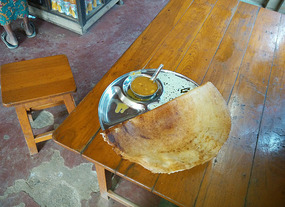
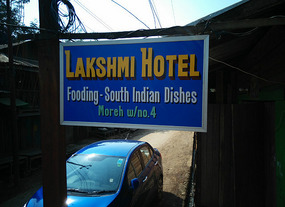
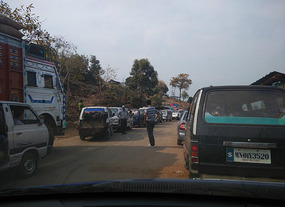


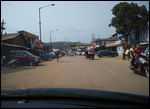
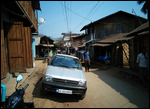
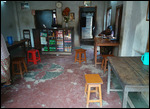
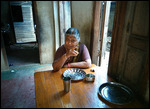
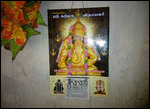
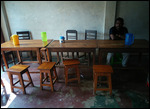
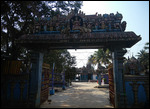
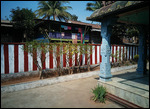
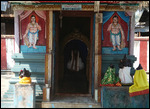
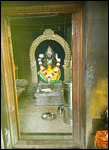
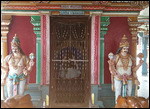
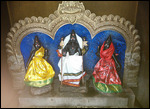
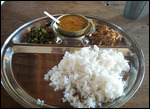
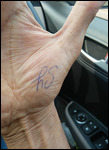
Ravi Rajagopalan
2015-03-03
Fascinating Ramesh. I did not predict this bend in your travels. I recall your mum lived in Burma and was born in Singapore? I also knew someone in Pondicherry who had done the walk back from Burma. In the 1960s after Gen Ne Win took power in Burma, he expelled all the Indians, and many of those poor souls did the walk back to India. Our people suffer and struggle and never give up. We build the malls and the roads in shiny Dubai, and our people get treated like dirt. Its very sad, And when one reads of little beacons of hope like Moreh, it puts a smile on the face. Safe travels.
sriram
2015-03-03
Am so delighted you took the trouble, with all the military checkpoints, to visit this place and the people.
Yes, many of us Tamil families will have similar Burma connection stories from pre-war . (And, btw, stories of Burmese mistresses, unplanned pregnancies, walking for days through the jungles ... exciting human drama!!!)
J
2015-03-03
what a cute story! Are these Tamils in touch with what's going on in Tamil Nadu today in terms of popular culture, politics, etc. or are they caught in a time warp?
Anne in Salem
2015-03-04
Fascinating as always, Ramesh. Curious which you prefer - slow driving because of military checkpoints or because of the terrible potholes?
Your meals look absolutely delicious.
The challenges of foreign workers have scarcely improved in the decades since your story began. Neglected accommodations, dangerous work conditions, volatile politics, not to mention the emotional toll caused by distance from one's family are as bad or worse now. The draw of better wages - and a better life for oneself and one's family - must be powerful.
TheMillionMiler
2015-03-04
Fascinating to see how languages evolve - albeit at glacial speeds. Best seen, when you uproot a community from their homeland, make them lose contact with home and see what happens to their mother tongue. A case and point is the Hindi spoken by Fijian Indians. One can, listening to them, figure out how Hindi must have been in India about 150 years ago. The Fijian Hindi is so alien to the rest of the Indian community as the words, idioms and phrases are so stuck in time! The only Hindi they knew was learnt from their parents, who learnt it from theirs, and who in turn learnt it from theirs, going back about 5 or 6 generations. I guess the Moreh Tamizh is similar! (Thankfully it is better than the Chennai Tamizh I presume!)
Suja
2015-03-04
What a nice adventure you have taken us on Ramesh! Fascinated to learn the historical aspects. I remember old Hindi (and Tamil?) films where there would be some oddly dressed 'Rangoon' returned person showing off their wealth!! I have my own experience of 'differently abled' Tamil - my Indian grocery store in Lausanne is run by Sri Lankans, as seem most around here. My conversations with the couple is always illuminating language-wise. The Masala Dosa Mami would have been a font of information? Enjoying your travels...
Suja
2015-03-04
P.S. If you had had a bit more of your palm in the photo, I would have read your fortune :)
Asha
2015-03-04
Fascinating story....never knew Tamils were a part of MAnipur. like you mentioned in the story, My maternal grandpa was born in Rangoon and my grand uncle walked back from Burma through those jungles till bombay with 3 kim (similar to horlicks) bottles in a rucksack. He later joined the IFS and my granfather went on to become waterdiviner. I wish they were alive so i could ask them more. Such lovely unknown stories and anecdotes are what travels are made up of especially when you don't take the traditional brochure tourism. Thanks for discovering NE for us.....will travel along...
indigoite
2015-03-04
@Ravi - Thanks for being such a regular and encouraging commenter and for embellishing this travelogue. Yes, the Indian migrant labour has gone all over the world and in mostly unsung. Burma went into complete tailspin with Ne Win & Co. Yet, there is still a big Tamil population inside Myanmar.
@Sriram - Yes there is such a strong Tamil connection with Myanmar. If they had not gone backwards, thee story might be similar to that of Singapore.
@J - Oh they are completely clued in - thanks to TV. Plus is appears that many of the families that left regularly come back and visit.
@Anne - I didn't mind the military checkpoints one bit. The soldiers are very friendly, always want to talk to me and are very intrigued that I drove such a long distance to come there.
Yes the migrant worker's situation in all countries bar one is bad. The one country which is different is yours. Economic migrants have been give the opportunity to succeed. I know it is far from perfect, but the US stands as a model for the rest of the world to follow .
@Ravi - Its a combination of that, plus the Sri Lankan influence. In any case I enjoyed talking to them. Really missing your wonderful comments here. Come back and comment more often if you can. Trust you are doing very well.
@Suja - Yes, the Rangoon mami was considered a big social status n those days. Can completely understand th Sri Lankan experience - in most countries in the world the immigrant Tamil seems to more likely be a Sri Lankan than Indian.
And of your million talents, I didn't realise foretelling the future is also one of them :):)
indigoite
2015-03-04
@Asha - Ahh you have a Burma connection. It would have been lovely to have heard of their experience. I cannot even imagine what they went through.
Vincy Joseph
2015-03-04
I read this post with a smile on my face throughout. The masala dosa made me grin with its familiarity. ( most of the other stuff that i have seen so far has note even been remotely familiar to me). You must have enjoyed speaking in Tamil, I am sure.
And such an interesting story Ramesh. I had goosebumps when i read about the WALKING part. What people have to endure to make their livelihoods ?
indigoite
2015-03-04
@Vincy - Yes a bit of the familiar in an unfamiliar land.
Yes, those who walked - I cannot even believe they did that. It must have taken months through forests, rivers, dangerous areas, little food - unbelievably tough.
Usha
2015-03-04
In our conversation with those tamilinas from Burma and more particularly from Rangoon, you only heard of Rangoon Mani's wife who wore rock size diamonds, and of burmeseteak wood furniture, and i wonder how they even brought it all the way to Chennai, during the world war. Perhaps they were the lucky ones who boarded the last steamer .Although we knew many of them had come as refugees, I never realised what it actually entailed. It is amusing to note how the border town of Tamu has such a distinct burmese culture, and not a blend. The story on Moreh was absolutely fascinating .Take care, and eagerly awaiting to hear it from you all over again.
atthreya
2015-03-04
My admiration , my unalloyed admiration for the thought of adventure, for the adventure and for the reporting on the adventure. My humble prayers that all goes well with you.
indigoite
2015-03-05
@Usha - Hey thanks. I can't believe you are reading my blog with all those pressures on your time. Much honoured. Yes, Rangoon Mani's wife ...... :)
@Atthreya- Humbled, Honoured, Touched, Floored ...... Thanks a million
Pranav
2015-03-06
This is such a great history lesson. Everything I know about Burma is from a book based on a true story by Burmese author Pasqual Khoo Thew. The book is called "from the land of green ghosts". Interestingly enough, the book never touches upon the immigration population of the country. I would have never guessed that there were Tamil folks on the border. I really envy you for the experience you are having.
indigoite
2015-03-06
@Pranav - Thanks for reading n the midst of all your time pressure. I would like to explore more about Myanmar some day. Maybe .
Sandhya Sriram
2015-03-10
Never knew there was a mini tam land so far up in the north east. This probably answers Sriram 's query earlier on the connection between tam land and the north east. But I am also happy that you found some good food with Lakshmi mami, after all the struggle you would have gone through. I remember eating beef burger without beef for three continuos nights and when I reached home, tayir Salam was heavenly
indigoite
2015-03-11
@Sandhya - Oh, I haven't any problem with food at all. We are in India - everybody understands vegetariansim !!!